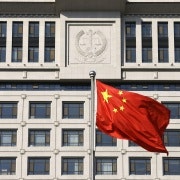Xi ditches his tie for hard US labour
This week China’s president, Communist Party general secretary, and chairman of the Central Military Commission, Xi Jinping, will make his first official visit as president to the United States. Xi is China’s most powerful leader since Deng Xiaoping returned to displace chairman Hua Guofeng in 1978.
In a major departure from normal diplomatic protocols, Xi’s first visit will not be a ‘state visit’ with all the attendant pomp and ceremony in the White House’s Rose Garden and a gala, black tie, dinner. Instead, this will be a working visit with the leaders meeting for an extended period of discussions. To emphasise the business-like approach to the meeting, it has been widely leaked that the dress code is “shirt-sleeves”. It is likely to end up with the moniker ‘shirt-sleeve diplomacy’.
China’s leaders and media managers would have thought long and hard about this approach. Hundreds of millions in China will hang on the continuous official news bulletins reporting Xi’s every move. Millions more will be dissecting every aspect of the visit on China’s blogs and social networking sites. All public appearances will be carefully choreographed.
The informal packaging of the visit is to underline Xi’s determination to convince the sceptics at home that he is indeed serious about the Party’s internal austerity and anti-corruption campaigns. It is all about domestic political imagery and has nothing to do with US perspectives. President Obama has been obliging in this, but the US, unlike China, is much less hung-up on protocol formalities.
Shirt-sleeves or not, the agenda will be the same. The top issues that officials will have been busy for months working on to brief their leaders will include the state of bilateral relations, including trade and investment frictions and cyber crime; China’s military modernisation and Obama’s ‘Pivot to Asia’; regional security issues, notably North Korea, and territorial disputes involving Japan and the South China Sea; Syria and the Middle East more generally; nuclear non-proliferation; the outlook for the global economy and respective contributions to promoting global growth; and climate change and energy security.
Some specific initiatives can be expected, but even without these the discussions will be the most important international meeting of the year. It was once the case that the world waited for the G7/8 to meet and provide leadership on global economic and financial matters and broader public goods issues affecting the international order. Post the global financial crisis of 2008, the European dominated G7/8 was supplanted in this role by the much more representative G20. G20 included China and other emerging economies, and Australia also snared a seat at the big table. The problem has been that the G20 – which Australia will host next year in Brisbane – suffers like all international organisations from dis-economies of scale. It is too big to produce clear and decisive decisions and instead has become more interested in process, not least who will host the annual summits.
So the G7/8 is an anachronism and the G20 is worthy. But the global system needs leadership and that will occur, if all goes well, this week in California when the G2 – the US and China – meet. Both Washington and Beijing, for a complex mix of reasons, run a mile at the suggestion that there is a G2 but that is what will happen this week. From Australia’s point of view we should welcome this. Nothing matters more to Australia’s security and future economic wellbeing than for the US and China to engage regularly in deep dialogue on the issues important not just in their bilateral relationship but on regional and global security.
When Xi meets Obama he will have an encouraging message on China’s contribution to global economic recovery. The latest official purchasing managers’ index, in contrast to the unofficial HSBC PMI, showed modest expansion in China’s manufacturing output and in the official services PMI. Together with essentially unchanged GDP growth between the fourth quarter of 2012 and the first quarter of 2013, China’s growth rate remains stable in the 7-8 per cent range. This is enough to see a doubling of China’s GDP in a decade if sustained.
Coming from now the world’s second biggest economy, this is indeed good news for Obama. Meanwhile, China’s current account surplus has largely disappeared in recent years, the nominal exchange rate has been appreciating steadily and the real effective exchange rate (when adjusted for relative inflation rates) has gone up some 30 per cent in the past few years. It seems the US is more accepting recently of China’s direct foreign investment – including in so-called sensitive sectors such as food – and the Chinese less rapacious in stealing intellectual property.
These were the issues that in previous US/China summits dominated the agenda of talks. A lot of issues remain for the leaders to work through in the G2. But then again, there may also be time for a little mahjong.
Geoff Raby is chairman and CEO of Beijing-based advisory firm Geoff Raby & Associates, and a former Australian ambassador to China. He is vice chairman of Macquarie Group China and a Vice Chancellor's Professorial Fellow at Monash University.













